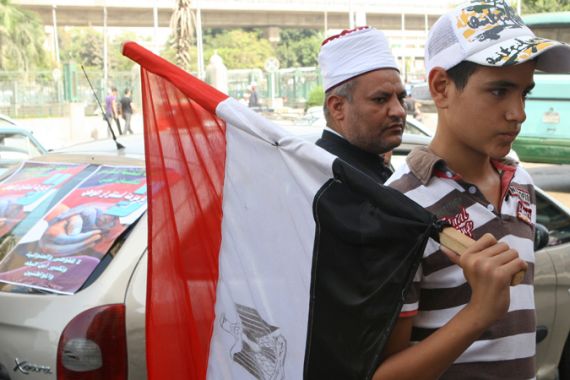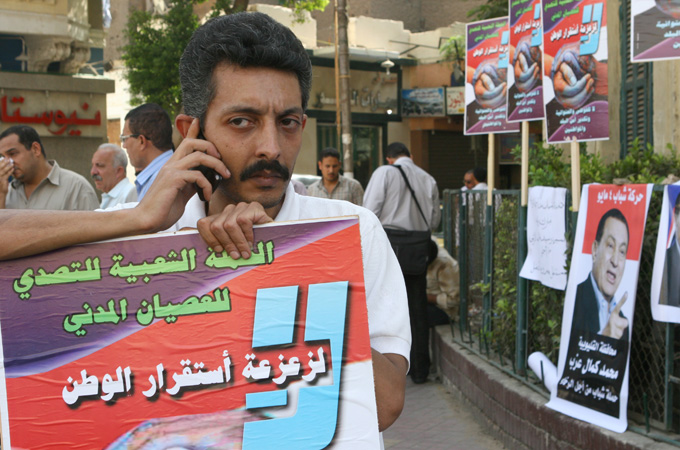Egypt elections set for November 28
Government clamps down on opposition as Hosni Mubarak, the president, announces date for parliamentary elections.

 |
| A total of 508 elected seats are up for grabs in parliament, which is dominated by the National Democratic Party [EPA] |
Hosni Mubarak, the Egyptian president, has set November 28 as the date for a parliamentary election which the outlawed opposition Muslim Brotherhood has vowed to contest despite a wave of arrests.
The run-offs after the first election will be held on December 5, the official Mena news agency reported on Wednesday.
A total of 508 elected seats are up for grabs in the legislature, which is currently dominated by the ruling National Democratic Party. Another 10 are filled by the president.
The Muslim Brotherhood, which fields candidates as independents to get round a ban on religious parties, won a fifth of the seats in the last election in 2005, despite a police crackdown that closed down polling stations.
Since the group announced on October 9 that it would contest 30 per cent of seats, police have arrested around 150 of its members, the Brotherhood says, most of them election campaign workers, who have since been released.
Government crackdown
The Brotherhood has faced a heavy government crackdown since its surprise showing in the 2005 elections.
Thousands of Brotherhood activists have been arrested in recent years, including some of the group’s leading members and financiers.
Malcolm Smart, a spokesman for the London-based Amnesty International, said on Tuesday that the latest arrests seek to “disrupt Muslim Brotherhood campaigning and deter people from supporting the organisation in the coming elections”.
Amnesty, which has reported 70 arrests of Brotherhood members, urged the authorities to either release those detained or raise official charges against them.
Both the Brotherhood and legal opposition parties with seats in parliament have rejected calls by Mohamed ElBaradei, the former UN nuclear chief turned government critic, for a boycott of the election.
Channels shut
Meanwhile, Egypt’s main satellite operator has shut down another 12 private television channels on grounds of “violating broadcasting licences”.
Earlier this month, Cairo ordered the suspension of the licences of five channels after accusing them of violating the terms of their contracts with NileSat and breaching broadcasting ethics.
Annas el-Fiqi, Egypt’s information minister, described the ban by NileSat as “corrective measures” to protect the Egyptian and Arab viewers from the offending channels.
NileSat also warned 20 other channels to obey regulations.
The shutdowns followed last week’s move by Egypt’s telecommunications regulator, which set new rules for companies sending text messages to multiple mobile phones.
Under the new rules, companies sending out text messages – known as SMS aggregators – must now obtain licences.
Activists say the move will stifle efforts to mobilise voters ahead of the upcoming elections.